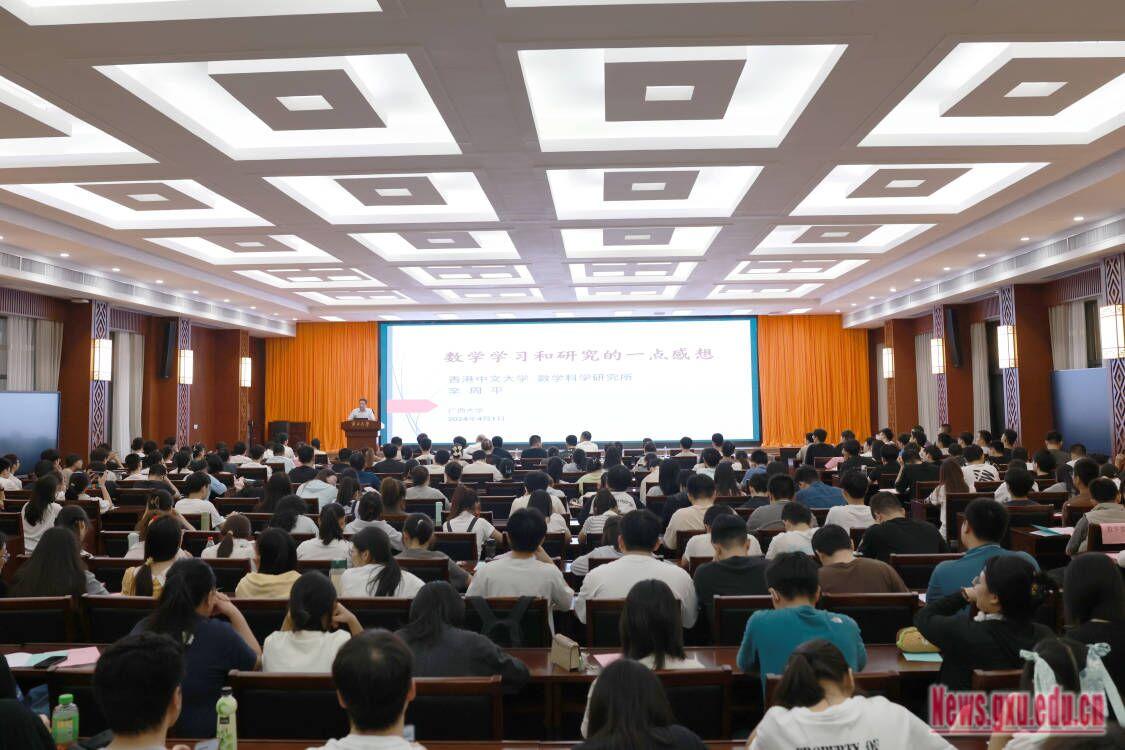April 1st, Professor Xin Zhouping from The Chinese University of Hong Kong was invited to give a lecture titled "Reflections on Mathematics Learning and Research" to faculty and students of Guangxi University. The lecture was chaired by Liang Enwei, Vice President of Guangxi University.

Liang Enwei warmly welcomed Professor Xin Zhouping to our university and introduced his research achievements in areas such as hyperbolic conservation laws, high-dimensional shock waves, boundary layer theory, mixed-type equations, compressible and incompressible fluid equations, numerical computation, and methods. He has published over 180 papers in renowned international journals such as CPAM, Adv. Math., CMP, and ARMA, with over 12,000 citations on Google Scholar, and over 4,000 citations in the past five years. Professor Xin Zhouping was also a recipient of the Sloan Research Fellowship in the United States and received the Morning Star Mathematics Prize at the 2004 International Conference of Chinese Mathematicians. Liang Enwei expressed the hope that Professor Xin Zhouping would continue to support and guide the development of mathematics, physics, and other related disciplines at GXU.
Professor Xin Zhouping focused on introducing the mathematical theory and development overview related to partial differential equations and related models in continuum mechanics. He emphasized that partial differential equations are not only an important foundational discipline in modern mathematics but also a fundamental bridge between many important branches of mathematics and between mathematics and other sciences, making them a typical interdisciplinary subject. Drawing from his own experiences in studying and researching mathematics, Professor Xin Zhouping discussed attitudes and methods for learning mathematics: cultivating interest, enhancing self-creativity, integrating mathematics with other disciplines, mastering new technologies, understanding frontier issues in the field, enhancing research awareness and capabilities, valuing modeling and background, and achieving a balance between breadth and depth in one's chosen direction and field.
Professor Xin Zhouping interacted with the students, patiently answering their questions, and creating an active atmosphere during the lecture.
Over 300 faculty and students from mathematics, physics, and related disciplines attended the lecture.
 Home
>
News & Events
>
Events
Home
>
News & Events
>
Events
 Home
>
News & Events
>
Events
Home
>
News & Events
>
Events




